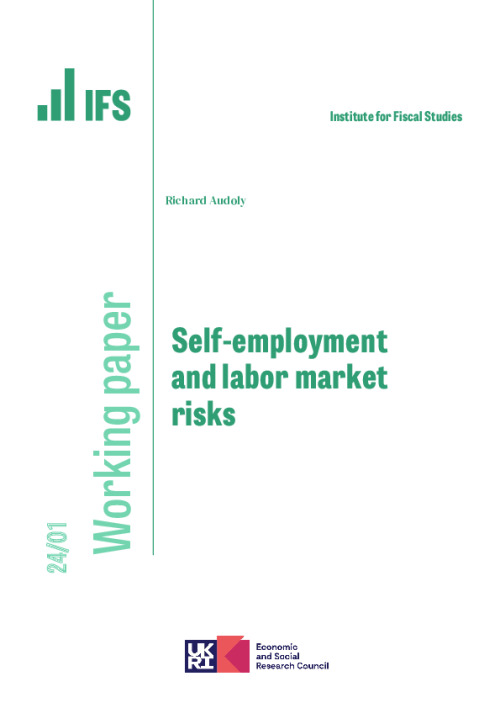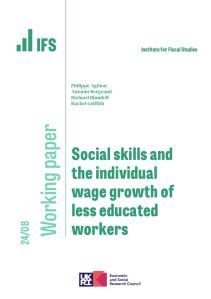Downloads

Download working paper here
PDF | 1.32 MB
I study the labor market risks associated with being self-employed. I document that the self-employed are subject to larger earnings fluctuations than employees and that they frequently transition into unemployment. Given the self-employed are not eligible to unemployment insurance, I analyze the provision of benefits targeted at these risks using a calibrated search model with (i) precautionary savings, (ii) work opportunities in paid- and self-employment, (iii) skill heterogeneity. This exercise suggests that extending the current US unemployment insurance scheme to the self-employed comes with a clear increase in the transition rate from self-employment to unemployment and an unequal benefits to contributions ratio across skill groups. At the calibrated parameters, the self-employed in the middle of the skill distribution lose welfare.
Authors

Research Associate New York Fed
Richard is a Research Associate and an Assistant Professor at the Norwegian School of Economics, focusing on labour, macro and search.
Working Paper details
- DOI
- 10.1920/wp.ifs.2024.0124
- Publisher
- Institute for Fiscal Studies
Suggested citation
Audoly, R. (2024). Self-employment and labor market risks. 24/01. London: Institute for Fiscal Studies. Available at: https://ifs.org.uk/publications/self-employment-and-labor-market-risks (accessed: 30 June 2024).
Datasets used
More from IFS
Understand this issue

Big firm, little firm: are differences between companies driving inequality and holding back growth?
30 August 2023

Don’t cheer end of earnings squeeze: there is more pain to come
19 June 2023

The economics of immigration
8 June 2023
Policy analysis

How do the last five years measure up on levelling up?
19 June 2024

A decade and a half of historically poor growth has taken its toll
3 June 2024

The Conservatives and the Economy, 2010–24
3 June 2024
Academic research

Labour market inequality and the changing life cycle profile of male and female wages
15 April 2024

The impact of labour demand shocks when occupational labour supplies are heterogeneous
28 June 2024

Social skills and the individual wage growth of less educated workers
27 March 2024